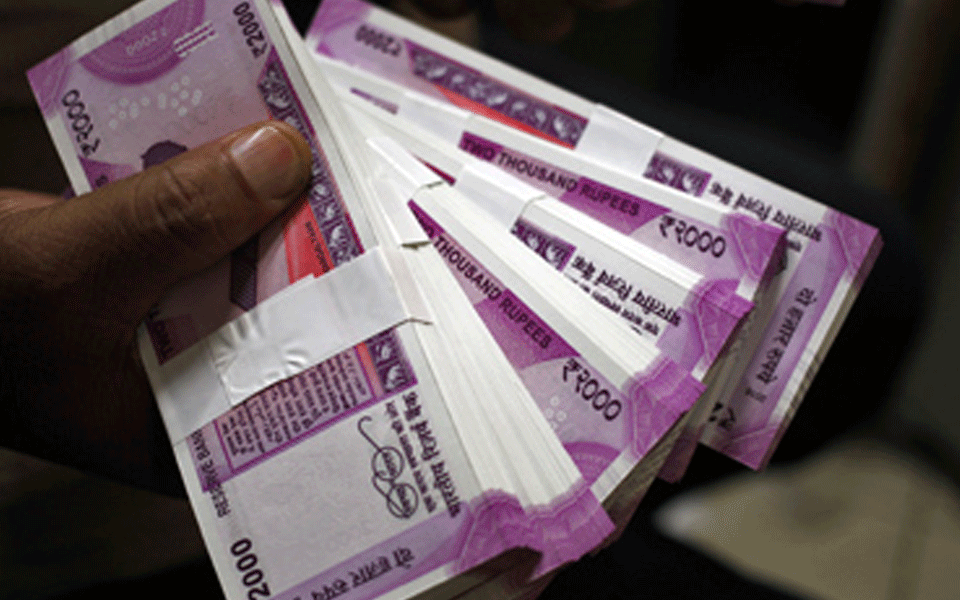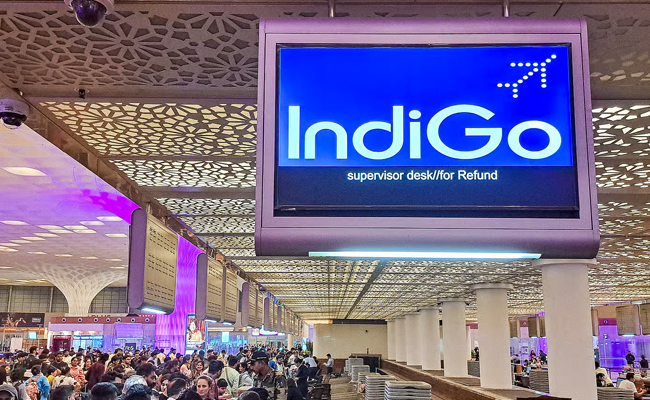New Delhi, July 17 : The government is likely to recapitalise some state-run banks in urgent need by up to Rs 10,000 crore within a few days to help them meet regulatory capital requirements, official sources said on Tuesday.
According to the Finance Ministry sources here, these banks, which include the Punjab National Bank (PNB), Corporation Bank and the Central Bank of India, are under pressure to make interest payment to bond holders of their Additional Tier 1 bonds.
The high accumulated non performing assets (NPAs), or bad loans, of banks and the consequent provisioning for these, has hugely dented bank profits, while the government has decided to recapitalise four-five banks which are facing "acute shortage and risk breaching the regulatory capital requirement", the officials said.
The fresh round of capital infusion of between Rs 8,000 and Rs 10,000 crore may take place within this week, or latest by the next, in these public sector banks (PSBs).
Last October, the Union Cabinet approved a Rs 2.11 lakh crore recapitalisation plan for PSBs.
In January this year, the government notified the recapitalisation bonds to allocate Rs 80,000 crore to 20 of these state-run banks. The bonds, split into six instalments, bear interest rates between 7.35 per cent and 7.68 per cent and will mature between 2028 and 2033.
The State Bank of India (SBI) will receive the biggest share of capital from the recapitalisation bonds, estimated at Rs 8,800 crore, followed by the IDBI Bank at Rs 7,881 crore and the Bank of Baroda at 6,975 crore.
As per the plan, PSBs are to get Rs 1.35 lakh crore through recapitalisation bonds, and the balance Rs 58,000 crore through raising of capital from the market.
The NPAs in the Indian banking system have reached a staggering level of Rs 9 lakh crore, while the bad loans of only the state-run banks add up to nearly Rs 8 lakh crore.
The government has embarked on a two-pronged strategy on bad loans.
On the one hand, it has brought in the Insolvency and Bankruptcy Code (IBC) which provides for a six-month time-bound insolvency resolution process, and on the other, it has adopted the recapitalisation plan to support the PSBs.
Commenting on the development, Acuité Ratings & Research President-Ratings Suman Chowdhury described the proposed fund infusion in PSBs as a significant affirmative action which will assure the bank bond investors of continuing government support.
"It reinforces our belief that the government would continue to support the PSBs particularly those under PCA (prompt corrective action) of the RBI and would not allow regulatory capital breaches which might lead to defaults in hybrid and perpetual instruments," Chowdhury said in a statement.
Let the Truth be known. If you read VB and like VB, please be a VB Supporter and Help us deliver the Truth to one and all.
Bengaluru (PTI): The Karnataka government has issued directions to municipal corporations across the state to regulate and prohibit feeding pigeons in public places, citing serious public health concerns.
Deputy Secretary to Government V Lakshmikanth has written to the Urban Development Department requesting it to issue directions to the Greater Bengaluru Authority (GBA) and all municipal corporations to take immediate steps to implement the measures.
In an official note dated December 16 issued by the Health and Family Welfare Department and released to the media on Wednesday, the department said uncontrolled feeding of pigeons in public places has resulted in large congregations of birds, excessive droppings and serious health concerns, particularly respiratory illnesses linked to prolonged exposure to pigeon droppings and feathers such as hypersensitivity pneumonitis and other lung diseases.
ALSO READ: Chinese GPS tracker found on seagull near Karwar Coast
"The commissioner, the Greater Bengaluru Authority and the Commissioners and chief officers of other municipal corporations shall take necessary action to mitigate the causes of dangerous disease spread by pigeon and enforce specified guidelines in their respective jurisdiction," the note said.
According to the department, these include a prohibition on feeding pigeons or causing pigeons to be fed in areas where it may cause nuisance or pose a health hazard to the public. Pigeon feeding shall be permitted only in designated areas in a controlled manner, subject to certain conditions.
"The designated areas may be selected in consultation with stakeholders. The responsibility for upkeep of the designated areas and compliance to the directions shall be taken up by some charitable organisation or an NGO. The feeding in designated areas shall be permitted only for some limited hours in the day," it said.
The note further stated that authorised officers of local authorities shall issue on-the-spot warnings and may impose fines for violation of the order, or lodge complaints to prosecute offenders under Sections 271 (Negligent act likely to spread infection of disease dangerous to life) and 272 (Malignant act likely to spread infection of disease dangerous to life) of the Bharatiya Nyaya Sanhita.
It also directed local authorities to conduct public awareness campaigns, including the display of signboards, banners and digital messages, explaining the health hazards associated with pigeon droppings and feathers, the content of the regulatory directions and penalties for violations, and alternative humane methods of bird conservation that do not endanger public health.





